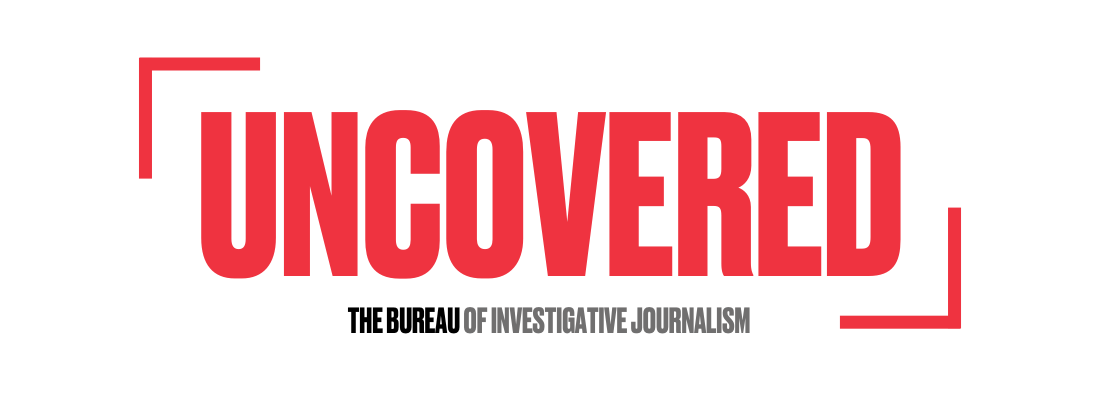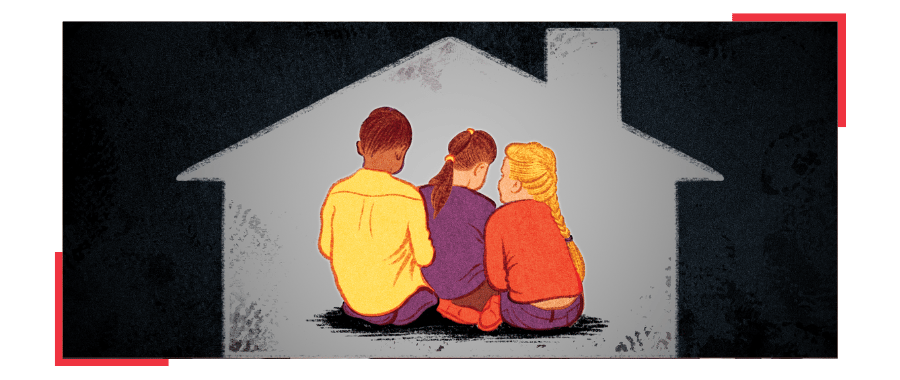
“When the police arrived at their home the first words out of [the judge’s] mouth was: ‘I’m a barrister, I’m a judge, [they are] a teacher.’ That was the shield they used to defend themselves”
Hi {{ First name | there }},
This week, we published a horrific account of an abusive household run by a primary school teacher and a family law barrister specialising in children’s cases.
A court had found that the teacher denied the couple’s three adoptive boys proper meals, locked them outside without shoes on and smacked them. They called one boy a “disease” and flushed his head down the toilet. They strangled another and called them a “stupid black bastard” and the “N-word”.
We believed that there was a high public interest in naming the parents, given that they were tasked with protecting children in public life. The parents denied the allegations, though they didn’t challenge them. They also didn’t want to be identified publicly, arguing that this would jeopardise a potential reunion with their children, who are now in foster care.
As she has done before, our reporter Hannah Summers went to court to challenge the anonymity being granted and demand transparency and accountability. I asked her to tell you how it went:
“The identities of parents going through family court are usually kept strictly anonymous to protect the children involved. But unusually in this case the guardian representing the children was initially supporting naming of the parents. The boys had felt silenced and wanted their truth validated.
Initially I didn’t know who the parents were but there was someone in court from the regulator for barristers, suggesting that was what one of the parents did for a living.

Hannah Summers
Naming anyone involved in a family court case is incredibly difficult. The default is, appropriately, to protect people involved in these cases.
Then again, I and other journalists had just recently convinced the Court of Appeal to overturn a ban on naming three judges involved in the historic proceedings relating to the murdered schoolgirl Sara Sharif. Those judges hadn’t carried out any child abuse. So why should this family judge remain anonymous?
I got up in the high court to make my argument. It took me an hour and a half to get through it all, explaining in great detail, why naming these parents really was the right decision. At this point the children’s guardian had changed her position on this to neutral, so the odds were moving against me. I highlighted the significance of the couple’s respective professions – roles entrusted with power, public confidence and the responsibility for others, including children.
The parents said they had struggled with their mental health and that they had no intention of returning to their professions.
But I argued the family court cannot be seen to shield those it entrusts with such extensive powers from public scrutiny. A decision to protect the identities of the parents could prove damaging to the public confidence in the system – especially when those representing the children were not objecting to the couple being named.
When the judge decided to restrict the media from naming them, she said the decision had been “exquisitely poised” but that ultimately the children’s privacy needed to be protected.”
Hannah is incredible to work with. She is so fastidious about every last detail of each story she looks at. Every angle gets a good look. So I always feel assured we’ve thought of everything. And I’m proud that even though the court didn’t find in our favour, Hannah stood up and put forward the case for transparency and accountability.
Factchecked!
Each week we reveal a fascinating fact from our reporting…
Did you know?
Britain’s poultry industry took off in the 1950s thanks in part due to promotions such as Sainsbury’s 1958 marketing campaign “Chicken is cheap.”
Find out more
These days, almost half of the meat Britons eat is poultry. And, according to the British Poultry Council, more than two thirds of poultry meat consumed globally comes from the UK – where there is a growing poultry farming industry.
Thanks to the use of antibiotics, more birds can be kept in less space, without the accompanying risk of disease. But the widespread antibiotic use in farming has come at a cost: the heightened risk of drug-resistant infections, which can spread to humans.
Read more here.
Why did a company selling drugs to the US Army threaten us?
The US Army spent nearly $1m last year on drugs that seem to have not been independently tested for safety or effectiveness – the kind of standards you might expect from something that is supposed to save lives.
We had tested civilian versions of the drugs the US Army bought and found them to be alarmingly weak. Neither the army nor the government agency that recommended the military drug tested it to verify the manufacturer’s claims of efficacy.
This story reveals how many gaping holes there are in the management, regulation and sale of life-saving drugs.
Both drugs we looked into are versions of a snakebite antivenom called Polyserp and cost the army a combined $880,000 last year. One covers Middle Eastern, North African and Central Asian regions, and the other covers sub-Saharan Africa – where a recent TBIJ investigation revealed a “wild west” of antivenoms that are badly made, marketed and regulated.
You can imagine that Inosan Biopharma, which makes the antivenom, was not particularly pleased when we asked them about this. We knew we’d struck a nerve when instead of getting a response from the company, we heard from lawyers it had hired to threaten us with libel action.
An 11-page letter labelled “URGENT” and “NOT FOR PUBLICATION” informed us that we were sorely mistaken about the lack of efficacy of the drug we’d tested and the absence of clinical trials. I won’t rehash the whole thing, but it ended with a clear threat to sue us “if necessary”.
This is what journalists in the UK are up against; expensive lawyers who want to put the fear of god into you rather than provide proper answers.
We did what we always do. We reviewed our evidence, discussed the points the lawyers made, went back to experts to recheck our reporting and considered whether our reporting remained in the public interest. And then we published.
We don’t back down because we’re threatened. There wouldn’t be much accountability if we did.
If at first HMRC don’t succeed…
Finally, something for lovers (or should it be haters?) of HMRC’s bizarre failings.
The tax agency issued a notice to force Paul Baxendale-Walker, a tax adviser, to stop promoting two avoidance schemes. It’s the first time HMRC has taken action of that kind against an individual rather than a company.
HMRC said the schemes covered by the notices are artificial arrangements, using offshore trusts to claim tax deductions without any genuine business reason.
You may recognise Baxendale-Walker’s name. We previously investigated a case in which HMRC made a rudimentary error that screwed up a case against Baxendale-Walker, a struck-off solicitor, that could have otherwise led to a £14m fine. HMRC itself estimated in court papers that his tax avoidance schemes had cost the taxpayer £1bn, a figure Baxendale-Walker disputes.
We don’t know whether the stop notice is in connection with the schemes we reported on, but it’s interesting that HMRC has chosen to target him. Either way, we’re happy to keep the spotlight on him and HMRC.
His case has become emblematic of HMRC’s inability to hold those who enable tax dodging to account. Baxendale-Walker gained notoriety after designing avoidance schemes in the 1990s and 2000s that were later found not to be legal.
Tax is only going to become a bigger issue for a government that’s made huge pledges about closing the tax gap.
Responding to our story at the time, Baxendale-Walker said the £14m fine was a “fiction”. We’re still waiting to get his response about the stop notices, but if we do get one I’ll let you know.
What we’ve been reading
🔴 Indian police are using brain recordings as evidence of a suspect’s guilt or innocence in criminal cases, despite scientists’ scepticism science.org
🔴 Russia used Brazil as a launchpad for deep-cover spies who shed their original identities and ‘became Brazilian’ – until they were caught nytimes.com
🔴 Supermarket fish farmed with Senegalese fishmeal are contributing to food insecurity and unemployment in west Africa guardian.com
Thanks,
Franz
Franz Wild
Editor

ADVERTISEMENT
Receive Honest News Today
Join over 4 million Americans who start their day with 1440 – your daily digest for unbiased, fact-centric news. From politics to sports, we cover it all by analyzing over 100 sources. Our concise, 5-minute read lands in your inbox each morning at no cost. Experience news without the noise; let 1440 help you make up your own mind. Sign up now and invite your friends and family to be part of the informed.






